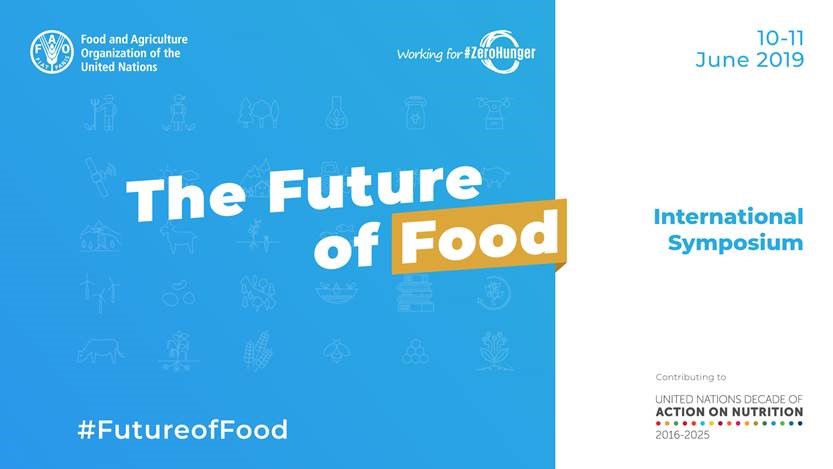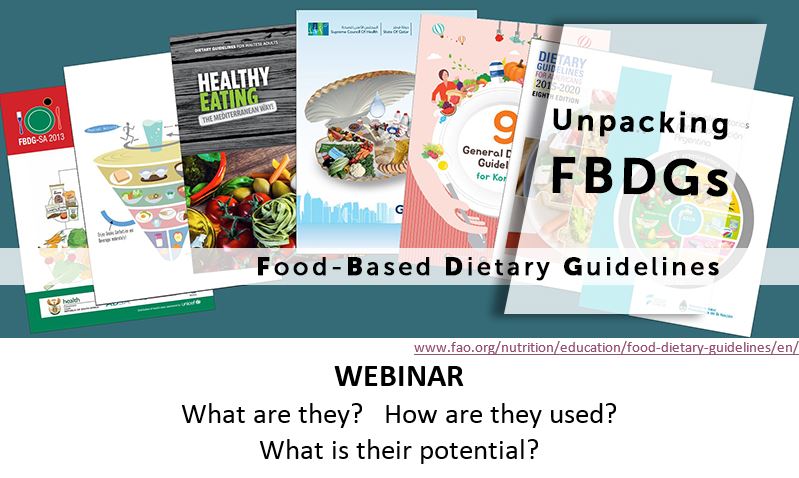Archive for year: 2019
10-11 June 2019
FAO HQ, Rome (Italy)
While undernutrition persists, we are witnessing an unprecedented rise in obesity and diet-related non-communicable diseases, including in low- and middle-income countries.
What is wrong with our food systems? How will we feed a growing and urbanizing world population with natural resources that are limited and are being depleted?
FAO is convening a 2-day symposium on The Future of Food, bringing together academics, researchers, policymakers, representatives from civil society and private sector, parliamentarians and government agencies to discuss these questions (and many more) and to explore pathways to a sustainable future of food and healthy diets for all.
A High Level Event on the Mediterranean Diet is organised on Tuesday 11th June, from 14:00 - 15:00 Rome time (GMT+2).
Live-stream is available here.

6-7 June 2019
New York
The Management Segment serves the following functions:
- The review of the reports of the Council’s subsidiary and expert bodies; these include the reports of all Functional Commissions, the Regional Commissions, the Committee on Non-Governmental Organizations, as well as expert and ad hoc bodies.
- The system-wide coordination and review of specific development issues, with a view to promoting a more integrated response to specific areas (for example, gender mainstreaming or non-communicable diseases).
- The consideration of special country situation or regional issues which are on the agenda of ECOSOC (including the work of its Ad Hoc Advisory Group on Haiti).
On 6th June, in accordance with its mandate, UNSCN will present the Report for 2018.
Tuesday 4 June
13.00 (GMT), 14.00 (CET)
Presenter: Fatima Hachem
Senior Nutrition and Food Systems Officer
Nutrition Education and Consumer Awareness Group, FAO
In the arena of food and nutrition, consumers around the globe are bombarded with information and advice on how to eat better in order to improve health and well-being. Having dietary guidelines that are food-based, built on scientific evidence and culturally and economically appropriate to the local context is what governments have been engaged in establishing in the last few decades. Although these guidelines were thought essentially as a consumer education tool, the data and information base on which they are founded goes beyond the nutritional problems at country level to span a wide area of related sectors and policies. This renders the dietary guidelines useful for a range of other usages while addressing the local public health and nutrition priorities, including public procurement, social protection, food subsidies, food security and nutrition and agricultural policies.
FAO has been actively assisting Member Countries in the development, implementation and revision of their Food-based Dietary Guidelines (FBDGs) and has been periodically reviewing the progress made in the development and use of FBDGs as well as tracking changes in their overall focus and orientation. FAO also hosts a growing online repository of FBDGs which is proving useful for researchers and policy-makers alike.
Join us for this webinar where we will provide an overview of food-based dietary guidelines focusing on the following questions:
- What are national FBDGs?
- How have they been traditionally used?
- What is their potential use?
The webinar will also highlight some examples of national FBDGs across the world, and present FAO’s current work in this field.
This is the first of a series of 6 webinars on FBDGs that are organized by the Nutrition Education and Consumer Awareness Team of FAO
Latest Pics
 15th Africa Day for Food and Nutrition Security CommemorationNovember 4, 2024 - 11:08 am
15th Africa Day for Food and Nutrition Security CommemorationNovember 4, 2024 - 11:08 am Junior Parliament Engagement Meeting – Murewa DistrictNovember 4, 2024 - 11:05 am
Junior Parliament Engagement Meeting – Murewa DistrictNovember 4, 2024 - 11:05 am Nutrition Education SessionsOctober 11, 2024 - 9:13 am
Nutrition Education SessionsOctober 11, 2024 - 9:13 am ZAS 2024October 11, 2024 - 9:08 am
ZAS 2024October 11, 2024 - 9:08 am ZITF 2024October 11, 2024 - 9:04 am
ZITF 2024October 11, 2024 - 9:04 am
Follow us on Facebook
News Calendar
| M | T | W | T | F | S | S |
|---|---|---|---|---|---|---|
| 1 | 2 | |||||
| 3 | 4 | 5 | 6 | 7 | 8 | 9 |
| 10 | 11 | 12 | 13 | 14 | 15 | 16 |
| 17 | 18 | 19 | 20 | 21 | 22 | 23 |
| 24 | 25 | 26 | 27 | 28 | ||
Contact Us!
Tel: +263 242 860 327
WhatsApp: +263 776 990 479
1574 Alpes Road
Harare
Zimbabwe
Email: info@fnc.org.zw
- Monday-Friday: 8am to 4:30pm
- Saturday: Closed
- Sunday: Closed


